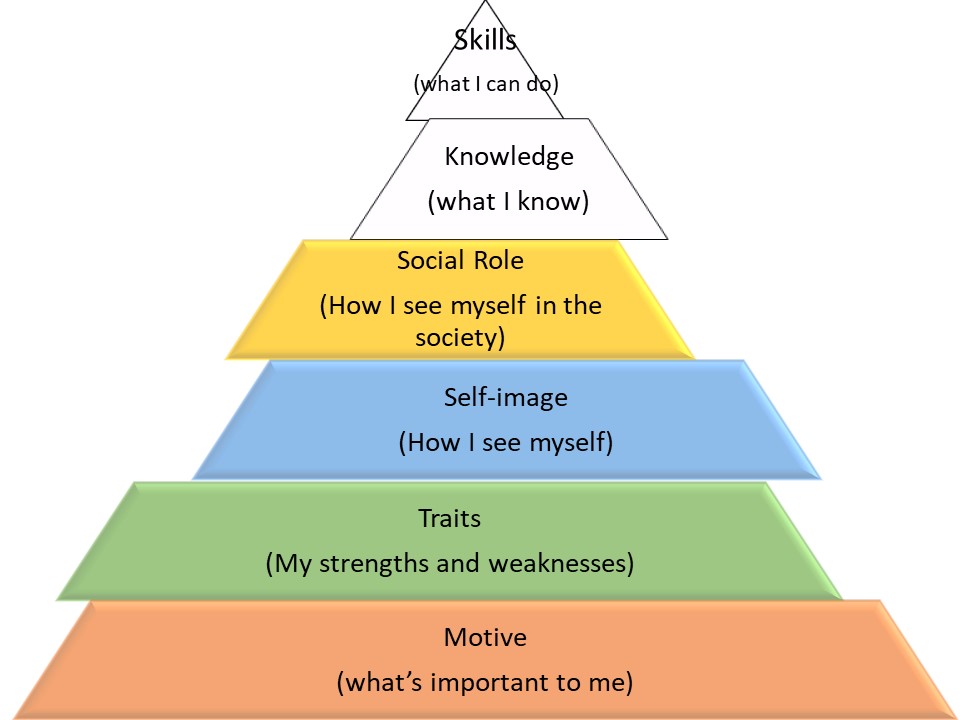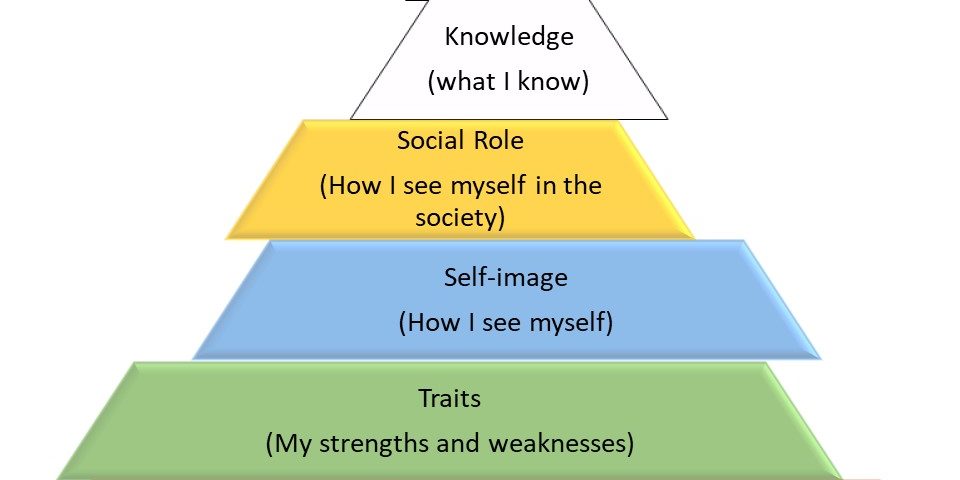I’m writing another article on this topic because I feel that I didn’t do enough analysis on the impact of the elements beneath the surface of the Competency Iceberg Model that affect what appears on the surface in my last article.

This topic is important to me as a learning and development professional and as a person responsible for the growth of people in my organization. I’d like to sift through each of this elements with my thoughts and reflections in the hope that I or you can make sense of it and understand what needs to be done to learn better and achieve our full potential. I’d like to start with what’s nearest the surface and then move deeper as I go along.
Social Role
One of the topics I cover in Basics of Leadership and Management is “Stepping up to Leadership.” I find it to be an important topic. Many people are appointed to positions that require leadership but without embracing the role, they cannot begin to learn what is needed to succeed in that role. I think the same is true for any kind of learning or training for that matter. Embracing the role means accepting the high expectations that come with that role, otherwise, you’re just accepting the employment and the minimum required to keep it. The motivation to learn comes from feeling the responsibility to do better and succeed in the role. The keener you are about doing better, the more you will pursue learning and applying them to work. As an L&D Professional, what does this mean? A person who does not like his job will less likely learn to get better at it! It is important to place people in a job that they are willing to accept, with clear expectations that they are willing to pursue. As learning individual, reflect on how you see your role now and acknowledge if it is the one you want or if you need to move on.
Self-Image
How we see ourselves impact on the amount of risk we are willing to take. Know that our self image is subjective and part of the conditioning process that starts from our childhood. I can a name a few examples of self-image and how they affect our learning process
- Presumption of expertise – some people think they have enough knowledge and experience to know better. They refuse new information and resist change. I often see this in senior management of organizations who feel they don’t need training or learn a new method
- Poor self-image – some people think they can’t change. They think they’re not smart enough or capable enough of improvement. This kind of self-image make people veer away from efforts to learn because they’re afraid that if they fail to learn it will just magnify their lack of ability.
- Hunger for learning – some people feel that they don’t know enough, hence they pursue learning vigorously. Hunger for learning is different from hunger for knowledge. The hunger for knowledge is easy to satisfy because information is easy to access nowadays. The truly hungry for learning strives to find knowledge and use them to improve their work. If you say you have this hunger for learning but are not doing it, you probably just thought it’s a nice thing to say on your job interview.
As I said, our self-image is subjective. We can choose our attitude towards ourselves and the choice we make stays. Be careful which image of yourself you choose because it affects your growth.
Traits
This, I believe is an important part of who we are that we need to explore. We need to journey internally to find out our strengths, our talents and how we can best use them given the role we play, or use them as basis for the roles we choose to play. I would never be a good accountant, I’m better off being a trainer and HROD consultant given my personal traits, my strengths. I know I’m better off as a leader than as a manager given my penchant for visioning and strategy development and my dread for administration and control. Know what your strengths and weaknesses are, find applications for your strengths and they will naturally grow, like muscles being exercised.
Motive
This is the one at the bottom and the hardest to fathom. We don’t normally talk about what motivates us to do what we want to do. I think this is the reason for the lack of deliberateness in many people. They are unaware of their motives. It’s more than just having a goal, it’s about what we consider important. Is success important? Is saving face important? Is making an effort important or having a fair return for our effort important depending on what we consider as fair? Our efforts are driven by the things we value, whether we are conscious about what those things we value or not.
There are a number of stakeholders in our personal learning and growth, our DNA, the influence of our parents, teachers, and peers. Our mentors, bosses and other people we deem important or influential in our lives, our successes and failures also contribute to it. The most important person, the person with the biggest to gain or lose is ourselves. We have control over our motives, our self-image and our appreciation of our roles in the society. We have a way of knowing what kind traits or strengths we have and it will help us with the choices we make and how to apply ourselves best given the choices we make. When we become aware and more deliberate of these elements, we become better at absorbing information and applying these knowledge in the work that we do.
As learning and development professionals, I believe that we need to recognize that facilitating people’s journey towards self-awareness and mastery is an important intervention to helping them succeed in their role. The challenge has always been, people tend to avoid recognizing that this is gap and go straight towards acquiring hard knowledge and skills. However, without better self-understanding, we fail to apply these knowledge and develop them into skills. Case in point, some people attend problem-solving and decision-making training but fail to solve problems or make decisions because they lack a sense of ownership of the problem or don’t feel empowered to make decisions.
Another point, for each competency we identify, there are these elements that should be considered. We identify the competency descriptors and behavioral indicators because they are the ones that are determinable. However, we need to appreciate these deep-seated factors in developing people’s capacity to perform.
ExeQserve offers learning activities aimed at helping learners develop self-awareness and mastery. Check out these links:
- Leadership and Personal Mastery
- Work Attitude and Personal Effectiveness
- Professional Image Enhancement
- Time and Stress Management
We also facilitate the development of Competency Models that can help you in strategizing your learning and development efforts. Check out our next seminar on this topic.







